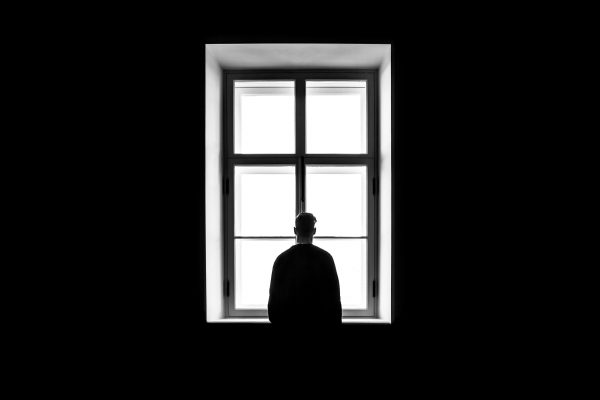Berak is helping bring the conversation back to how faith can be used to help recover and survive through mental health issues.
Berak is helping bring the conversation back to how faith can be used to help recover and survive through mental health issues.
Berak Hussain, a Muslim mental health speaker and Islamic counsellor and therapist, is pioneering the way for not only opening up discussions around mental health in general, but to also help Muslim communities break away from cultural taboos around ignoring mental health issues as well. Speaking to The Muslim Vibe’s Chief Editor Salim Kassim on this week’s podcast, Berak touches on important issues such as the link between faith and mental health, why men are typically not as involved in mental health discussions, and finally how to help survive mental illnesses such as depression and SAD (Seasonal Affective Disorder).
“There is still a lot of fear and lack of understanding around mental health…but we need to create that comfort where we can talk about these things.”
Listen to the interview in full below
Firmly against the idea that someone may simply be suffering from mental health issues because they do not have enough faith or are not practicing religion enough, Berak explains that mental health issues such as depression or SAD stem from hormonal imbalances and chemical reactions in the brain – similar to poor physical health. Arguing that no one would tell someone to be a “better Muslim” if they catch the flu or get physically weak, Berak argues that we should not be quick to judge someone’s faith simply because they have mental health issues. Stressing the fact that illnesses will always happen to the best of us regardless of our faith, Berak argues that while we should not blame a lack of faith on the illness, there are still ways of dealing with or recovering from mental health issues through faith.
“Faith has nothing to do with SAD or mental illnesses…but there are ways of using faith to help specifically with this.”
Coming from a background and profession of Islamic counselling, Berak explains that for many Muslims, and even non-Muslims who want a spiritual way of recovering, faith can be of the most important motivations for getting back on your feet. By bringing faith into therapy sessions, many clients feel an immediate safe space or comfort, something Berak implements through the use of Islamic language (sometimes by simply using the word “inshaAllah”), using God as a point of focus and source of support, and by using prayer as a form of meditation and as a relaxation strategy. Islamic counselling, while still looking at mental health from a clinical perspective, creates a unique safe-space of empathy for recovering, where Muslim clients can find a way of recovering from mental illnesses through faith if they so choose. Berak explains that even the act of prayer, while helping those suffering to reconnect with God and their faith, also biologically helps those recover with the stimulus of blood to the head among other benefits. Fasting, as it already is proven as a way to help reconnect with God, also proves as a physically important way to improve mental health because of its benefits of detoxifying the body. While faith is often used to blame those with mental health issues, Berak is helping bring the conversation back to how faith can be used to help recover and survive through mental health issues instead.
“For any of our problems today, we have solutions in our faith.”
While faith can benefit many who do suffer through mental health issues, Berak brings up an important point of discussion: men are often not part of these conversations about mental health, and are often forced to feel uncomfortable or even emasculated when opening up about emotions or mental issues. While she does see a change in Muslim communities with mosques and centers holding mental health events or inviting professionals to speak on the subject, oftentimes men do not feel as comfortable either attending to coming to professionals like herself for help. Often burdened with societal and cultural pressures to “toughen up” or “act like men”, many males feel forced to either hide their emotions or find often violent or unhealthy ways to deal with mental health issues instead. But to help combat this, Berak again turns to religion as a source of inspiration.
By looking at our Prophet and his family, one can see how they had all lived their lives with compassion, empathy, and love. We can all learn from them, Berak stresses, that it is “normal” and even Islamic to have and show emotions – and as long as there is a balance, it does in fact help with mental health to be able to express yourself freely and ask for help when needed. A lot of mental health issues may come from the push towards an unIslamic way of defining gender roles as well, she explains. With the rise of toxic feminism – feminism that does not, in fact, empower women but simply push a one-sided notion of how women should act in public – there is a growing confusion within Muslim communities of what our gender roles really are. Men especially can feel emasculated at times, and while this is not to blame solely on the rise of the different forms of feminism, Berak explains that our mental health can be heavily affected when one does not have the safe space to openly discuss confusions and questions around gender roles or how to find a middle ground.
“Even when the cold comes, embrace it.”
Finally, Berak spoke specifically about SAD, or Seasonal Affective Disorder, something that many of us do experience during the winter months and what we can do to help survive it and recover from it. SAD appears during the winter months, and is generally a result of the lack of sunlight and heavy dark hours that can lead many to feel higher levels of depression. The symptoms are generally fatigue, social withdraw, change in eating habits, weight gain, and having an overall poor mood. Like a form of depression, SAD can force many to feel unmotivated with a lack of interest in what normally would have interested us. People at higher risks of SAD can be those who suddenly go through high levels of change, such as university students, or those who suddenly go through higher levels of demands, such as again students or those who have started a new job or lifestyle.
“You’re still going to get illnesses regardless of your faith…it has to do with biology.”
To help combat SAD and help survive the dark winter months, Berak recommends firstly to always remind yourself that it is temporary. If you know that this depression is only for a short while, then that in it of itself can help you survive SAD, explains Berak. Educating yourself about it can also help. Instead of looking at SAD as some unknown, scary mental illness, Berak suggests that by simply educating yourself on SAD and reading up on it can help calm someone down in understanding exactly what they are going through. Light therapy, in where you can help stimulate your brain through large doses of light when there might not be any natural sunlight can help as well, and by eating, sleeping, and exercising one can also help improve mental health. Routine can also help, explains Berak, and by implementing routine activities such as prayer or going to community events one can help improve both symptoms of SAD as well as your overall mental health.
Working to both help combat the stigma around mental health issues as well as help treat those who do suffer with mental illnesses, Berak Hussain is an empowering and important leader in helping us better understand both faith and mental health. By understanding how to improve mental health, and that it is something that we should all do, we can better reconnect with our faith and understanding of how to fully practice Islam – both physically through acts of prayer and fasting but also mentally through acts of spiritual engagement and empowerment.
Listen to the full interview here:
Be sure to subscribe to our podcast for more awesome content!





